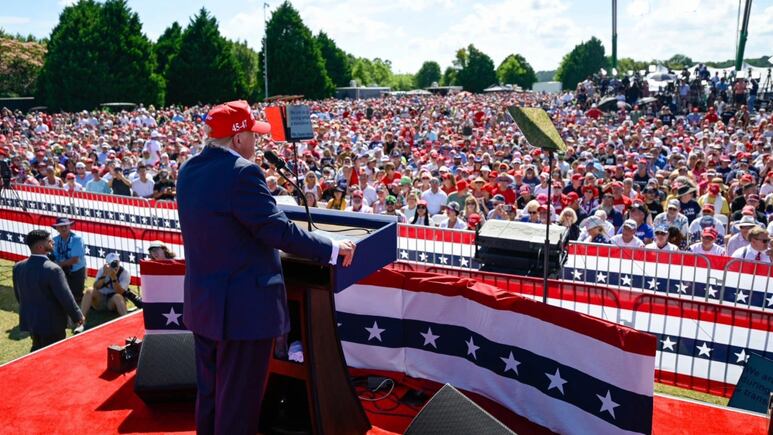The U.S. Electoral Problem
In an interview this weekend with host Mark Levin on the right-wing Fox channel, Republican presidential candidate Donald Trump

In an interview this weekend with host Mark Levin on the right-wing Fox channel, Republican presidential candidate Donald Trump complained about the new federal grand jury indictment against him for attempting to steal the 2020 presidential election.
Publicidad
"Who has ever heard of being indicted for interfering in a presidential election when you have every right to do it?" he asked.
U.S. laws, in fact, offer a different version, but Trump seems convinced that he operates on a different level than others and that his actions cannot provoke reactions. For example, he rejects any responsibility for the January 6, 2021, insurrection, despite his accusers claiming that he incited a crowd to march to the Capitol, the seat of Congress, gathered to certify Joe Biden's election.
Historian Heather Cox, author of a popular podcast, believes that Trump is approaching the 2024 election "in the same way that Southern white supremacists approached the elections between 1876 and 1964." She points out that he is not trying to win the votes of the majority of Americans but rather to intimidate his opponents to prevent them from voting while inciting his supporters to commit acts of violence.
Publicidad
"They are applying the tactics of Southern Democratic reactionaries after the Civil War to today in an attempt to impose the same type of minority rule on the entire nation."
Publicidad
But the reality is that one of the greatest concerns, if not the biggest, in U.S. elections is how the Republican right will react to a possible defeat.
A series of reports note that many of them do not believe it is possible for Trump to be defeated at the polls, except due to the actions of illegal voters, various electoral frauds, and certainly despite the evidence of polls showing a close race with a small but growing advantage for Democrat Kamala Harris.
In fact, the most convinced believe it will be the opposite.
"The certainty of the base about Trump's position is at odds with Trump's own private concerns about the state of the race, and those of his allies. And it reflects a base that, far from adapting to the changing dynamics of the race, is entrenching itself and is ready to protest any outcome that is not a Trump victory in November," reported the online newspaper Politico.
What is worrying is that in some cases, these are members of armed groups or militias, who have already appeared near some polling stations to "ensure the cleanliness" of the vote but more likely to intimidate certain voters, particularly minorities.
And sometimes, as in the states of Florida and Texas, it is the local authorities themselves who take care of it.
BY JOSÉ CARREÑO FIGUERAS
COLLABORATOR
JOSE.CARRENO@ELHERALDODEMEXICO.COM
@CARRENOJOSE1
Publicidad
Publicidad
Más Leídas | Heraldo USA
Precio del dólar HOY en México: sábado 5 de julio 2025
Por Heraldo USA
Últimas noticias sobre Julio Iglesias hoy sábado 5
Por Heraldo USA
La polémica historia de amor de Chantal Andere y Roberto Gómez, hijo de ‘Chespirito’
Por Heraldo USA
Jaime Vázquez Bracho: La Cuarta Transformación llegó a todos los consulados de México
Por Heraldo USA
Publicidad
Más noticias de Us election
Más noticias de Estados unidos










